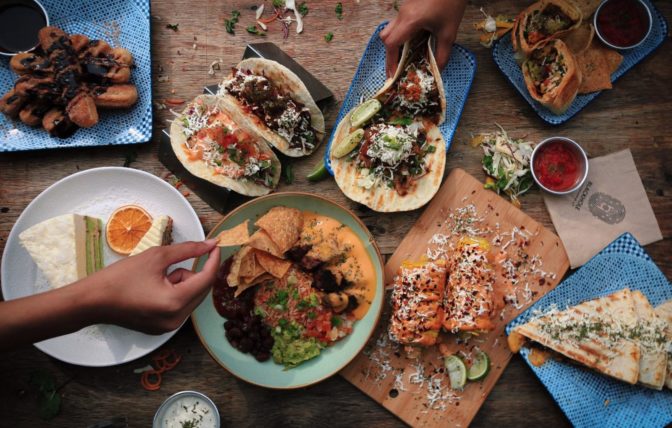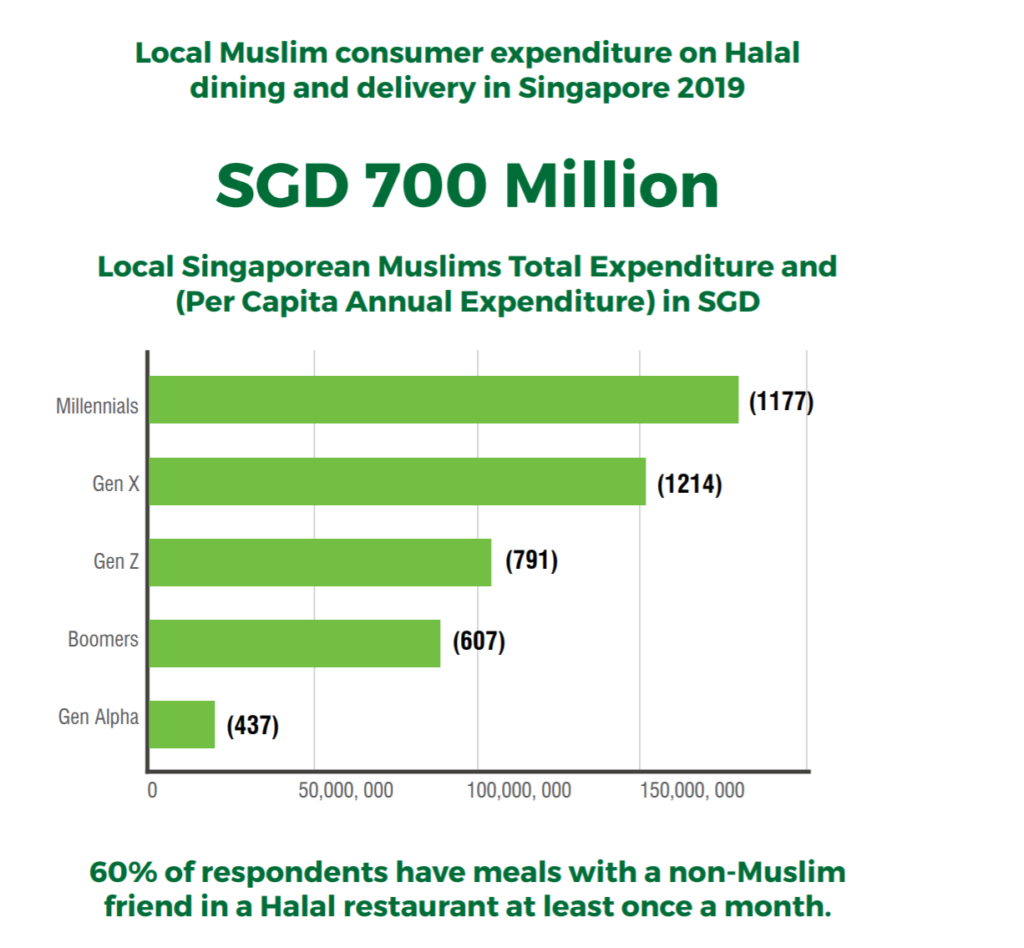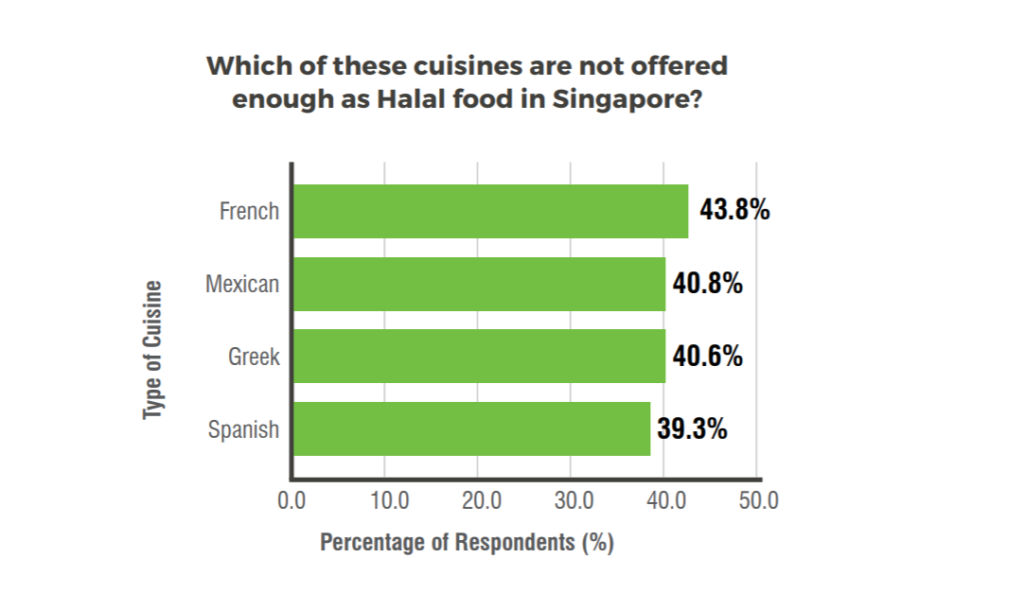
 "
"

 "
"

Singapore has always been a food paradise – the variety and tastes are diverse and represent the multi-cultural diaspora of the county. The country boasts of a vast culinary history so much so, that its hawker culture has been recently added to UNESCO’s Representative List of the Intangible Cultural Heritage of Humanity.
According to the inaugural report published by CrescentRating on consumer behavior and halal food trends; with Muslim visitors to Singapore spending SGD 300 million in 2019, the total Halal dining market was estimated to be SGD 1 Billion. The total local Muslim spending in Singapore was at SGD 700 million.

The 59-page report released on 3rd March, Wednesday is a combined efforts of Muslim lifestyle and travel consultancy CrescentRating and global payment technology solutions company, Mastercard.
The report consists of survey data from 500 Muslims aged 15 to 70 who responded to a questionnaire administrated by CrescentRating and HalalTrip; expert interviews with specialists and academics on halal food; key findings from publications and studies; insight from CrescentRating and HalalTrip’s extant studies platforms and in-country analysts.
Local Muslim millennials are the key driving force behind the growth of this sector. Aged between 25 to 40 years, they account for 24.0% of the local Singaporean Muslim population. Their per capita annual expenditure is SGD 1177.
Gen X (41 to 55 years) are the next highest category representing around 19.0% of the local Muslim population with annual per capita dining expenditure of SGD 1214.
Over 78 percent of the survey respondents were female.
The report notes that at least 65 percent of the respondents agree that there is a wide variety of Halal food in Singapore. However, they have commented that halal food is not readily available across the islands and are concentrated in clusters.
The last few years have seen a rapid expansion of different types of Halal cuisine in Singapore. Most Asian cuisines are now widely available as Halal
options. The increasing number of Halal cafes has also contributed to the availability of fusion cuisine, primarily catering to the younger Muslim
consumers. However, most are located in a few clusters, such as in Arab Street or Kampong Glam, Geylang Serai, and Little India.
Since 2013, the number of Halal certified restaurants have had a
CAGR* of 9.4%. There were close to 3000 eating establishments that are certified Halal by MUIS in 2019, the only Halal certification body in Singapore. 16.0% of these eateries are located in Hawker centres.
Local cuisines still dominate the market with Malay cuisine noted as the most popular among Singaporean Muslims. This is followed by Indian, Indonesian and Chinese cuisines. These top 4 cuisines consumed by Singaporean Muslims reflect the cultural dynamics of Singapore
The report suggests that there is an opportunity for F&B players to tap into these strong base of local cuisines as the younger generation may require not just a refined taste of these traditional fair, but also healthier versions of them.
The next most popular food among Singaporean Muslims are Thai cuisine with American cuisine coming a second close. Majority of the respondents agree that there is a variety of Halal food in Singapore; however some have noted that not enough is offered from non-Asian cuisines such as French, Mexican, Greek and Spanish.

The report also notes that Singaporean fast food market has also seen a boom as it is Singaporean Muslims’ alternative choices for meals when there are no Halal options available.
Price remains the most important factor for Singaporean Muslims when it comes to paying for a meal. Most respondents are willing to pay between SGD 6 to SGD 10 for a meal.
While home-based businesses have taken off during the pandemic, less than 5 per cent of respondents buy from them on a weekly basis. Some of the concerns raised regarding the home-based businesses include inconvenient collection methods, lack of engagement by sellers online, perceived poor quality of food and Halal assurance, and high prices including delivery fees.
More than half of respondents between 25 and 34 indicated that they obtain information about new Halal food in Singapore through social media.
Mr. Fazal Bahardeen, the Founder and CEO of CrescentRating and HalalTrip said that, “with local Muslim millennials being the key driving force of this sector’s growth, Singapore’s Halal food scene can expand with the increment of variety of food available; ensuring there are no breaches of trust in the halal assurance system.”